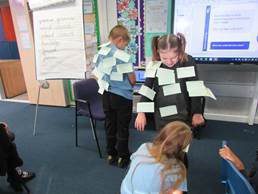This half term, all of the Riseparkers joined in with the national Anti-Bullying week.
We began with an assembly, which encouraged us to think about the theme ‘Reach Out’, what this means and who we might reach out to.
Throughout the week, each year group focused on different elements of anti-bullying and all had a different challenge. EYFS focused on friendships and kindness, KS1 focused on unkindness and prejudice, including who we can talk to if we feel or see something we don’t think is right. KS2 focused on how bullying happens online as well as face-to-face.


